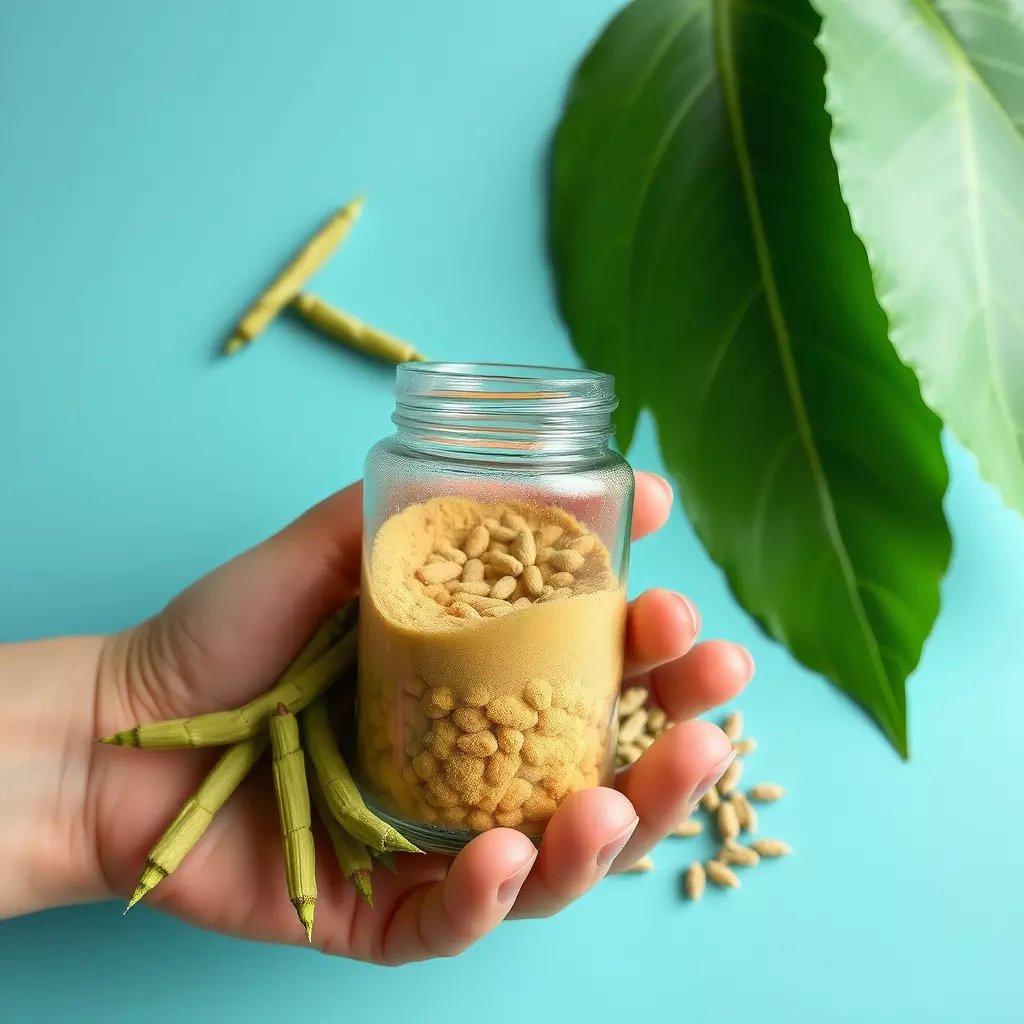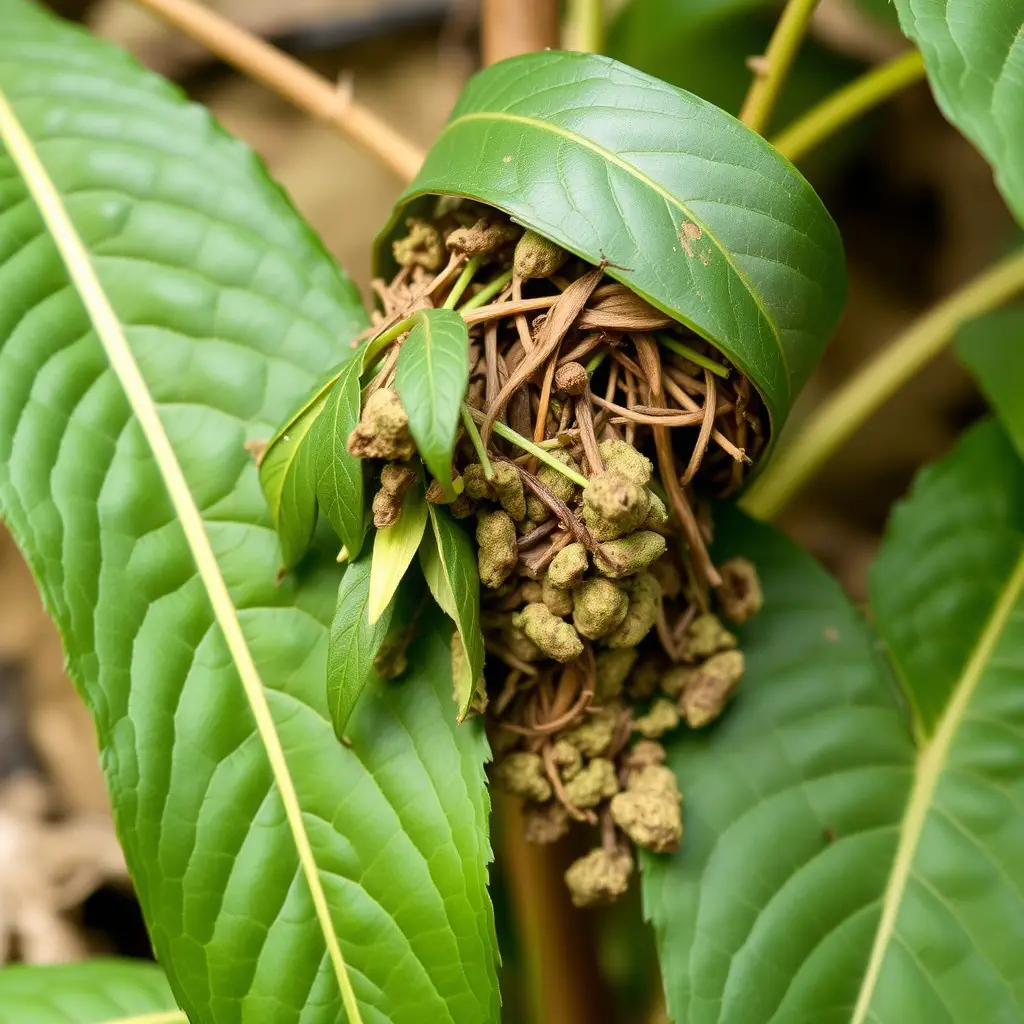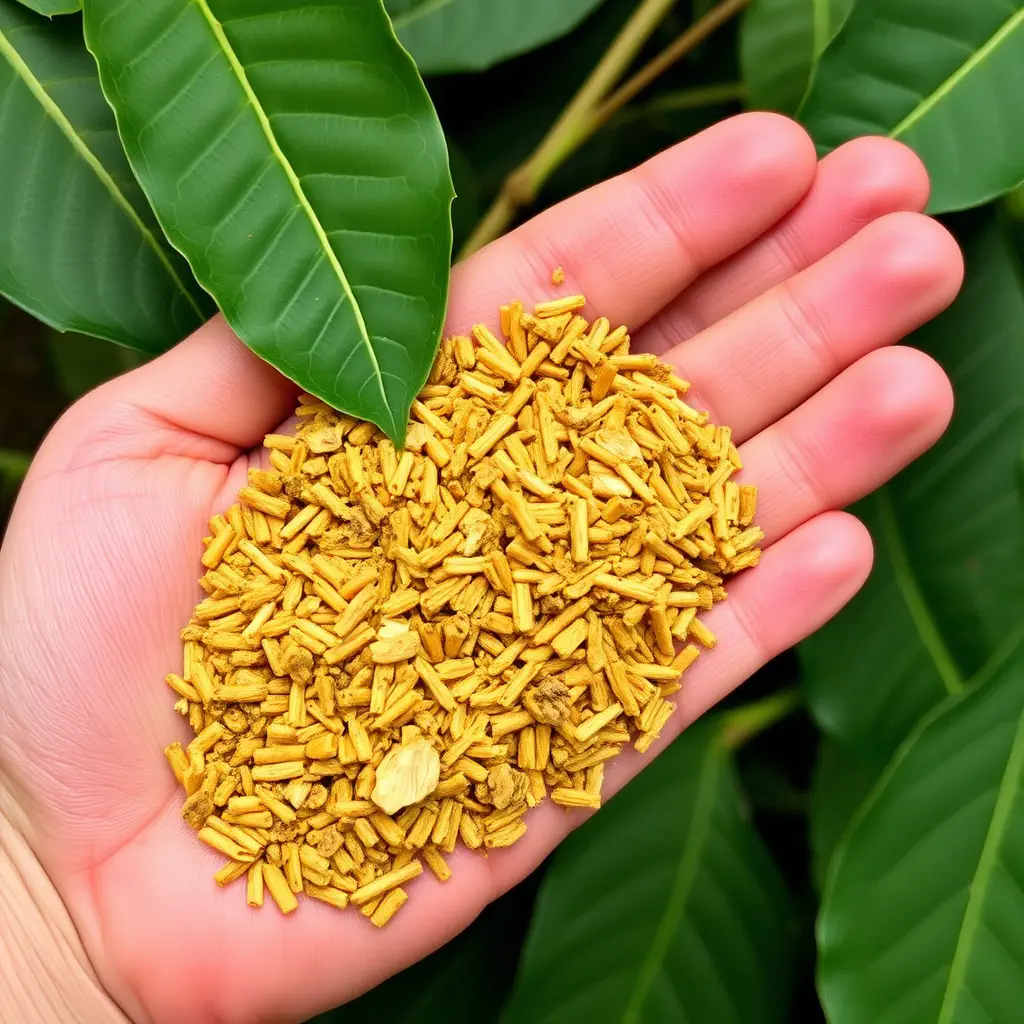Kratom, derived from Mitragyna speciosa leaves, has emerged as a natural supplement that some athletes are exploring to augment their endurance and stamina for enhanced athletic performance. It contains alkaloids like mitragynine and 7-hydroxymitragynine, which offer both stimulatory and analgesic properties. These can help combat fatigue, boost energy levels, and aid in faster recovery from muscle soreness, potentially reducing the risk of overtraining injuries. However, athletes must exercise caution with kratom's use due to its varying regulatory status globally and its potent effects. It is crucial for athletes to adhere to World Anti-Doping Agency (WADA) guidelines and consult medical professionals before incorporating it into their training regimen. The responsible, safe, and legal use of kratom within the sports context is key to understanding its potential role in improving athletic performance, with ongoing research offering further insights. Athletes interested in this natural option for enhancing physical capabilities should proceed with caution, seeking professional advice and remaining aware of the legalities and health considerations associated with kratom consumption.
The quest for athletic excellence has always pushed the boundaries of human potential, leading athletes to explore a myriad of performance-enhancing strategies. Among these, the use of natural supplements such as Kratom has gained attention for its purported benefits in elevating overall sports performance. This article delves into the multifaceted role of Kratom within the athletic realm, examining its historical use, scientific effects on stamina, and the potential for integrating it into a holistic performance regimen while navigating legal considerations and ethical implications. By personalizing its application and understanding its impact on mental and physical endurance, recovery, and focus, athletes can harness Kratom’s benefits to optimize their training and enhance their athletic prowess in a manner that aligns with health and fair competition standards. Join us as we explore the nuances of using Kratom for athletic performance with an emphasis on safety, research-backed practices, and ethical considerations.
Enhancing Athletic Prowess: The Role of Kratom in Sports Performance

The quest for athletic performance enhancement has led many athletes to explore natural supplements, among them kratom, a plant-based substance derived from the leaves of Mitragyna speciosa. Kratom’s potential role in sports performance stems from its dual-action alkaloids, mitragynine and 7-hydroxymitragynine, which are believed to influence athletic prowess through their stimulatory and analgesic properties. These compounds can reportedly enhance endurance by reducing fatigue and increasing energy levels, allowing athletes to train harder and longer. Furthermore, the analgesic effects of kratom may aid in recovery by alleviating muscle soreness, enabling a more consistent training regimen without the risk of overtraining injuries. While the scientific community is still examining the full scope of its effects on athletic performance, anecdotal evidence and emerging research suggest that when used responsibly and in accordance with athletic regulations, kratom could be a valuable adjunct to an athlete’s training and competition regimen for those looking to elevate their athletic performance with kratom.
It is crucial, however, for athletes to approach the use of kratom with caution, as its regulatory status varies by region and its effects can be potent. Athletes must ensure compliance with the World Anti-Doping Agency (WADA) regulations and consult with healthcare professionals before integrating kratom into their training routines. The potential benefits of kratom in enhancing athletic performance must be weighed against the need for safe, legal, and responsible use within the sporting community. As research continues to evolve, the role of kratom in sports performance may become clearer, offering a natural alternative for those seeking to optimize their athletic abilities.

Athletes across various disciplines are constantly seeking ways to enhance their performance and recovery times, which has led to an increased interest in natural supplements such as kratom. Kratom, derived from the leaves of the Mitragyna speciosa tree, has been traditionally used in Southeast Asia for its stimulating and analgesic properties. Recent studies suggest that certain strains of kratom may offer benefits to athletic performance by potentially increasing stamina and reducing fatigue. The alkaloids present in kratom leaves, such as mitragynine and 7-hydroxymitragynine, are believed to interact with the body’s opioid receptors, which could help athletes endure longer training sessions and recover more quickly between workouts. However, it is crucial for athletes to approach the use of kratom with caution, as its effects can be powerful and its legal status varies by region. Additionally, the long-term effects and potential interactions with other performance-enhancing substances or medications should be thoroughly evaluated by healthcare professionals before incorporating kratom into a training regimen. Proper dosing and adherence to regulations are key factors in maintaining both athletic integrity and personal health when considering the use of kratom for athletic performance elevation.
– Sub-headings:

Athletes at all levels are constantly seeking ways to enhance their performance, and the natural supplement kratom has emerged as a topic of interest within this realm. Kratom, derived from the Mitragyna speciosa tree, is known for its various effects on the body, which can potentially aid in athletic endeavors. For instance, certain strains of kratom may help in alleviating muscle pain and soreness post-exercise, thereby reducing recovery time. Additionally, it has been observed that kratom can contribute to increased stamina and endurance, which is crucial for athletes who engage in prolonged activities or high-intensity training. However, it’s important to approach the use of kratom with caution due to its potential side effects and regulatory status varying by country. Athletes considering kratom for performance enhancement should consult with healthcare professionals and be aware of the legal implications surrounding its use, as well as adhere to the guidelines set forth by their sport’s governing body to maintain fairness and safety in competition.
In conclusion, the exploration of how kratom can influence athletic performance with kratom suggests a multifaceted impact. Its potential to enhance endurance, augment focus, and alleviate pain without the negative side effects often associated with traditional performance-enhancing substances warrants further scientific investigation. Athletes considering kratom for performance enhancement should proceed with caution, adhering to regulatory guidelines and consulting healthcare professionals to ensure safe and effective use. The future of sports performance may very well involve a more nuanced understanding and application of natural supplements like kratom, contributing to the ongoing quest for peak athletic achievement in a responsible manner.






